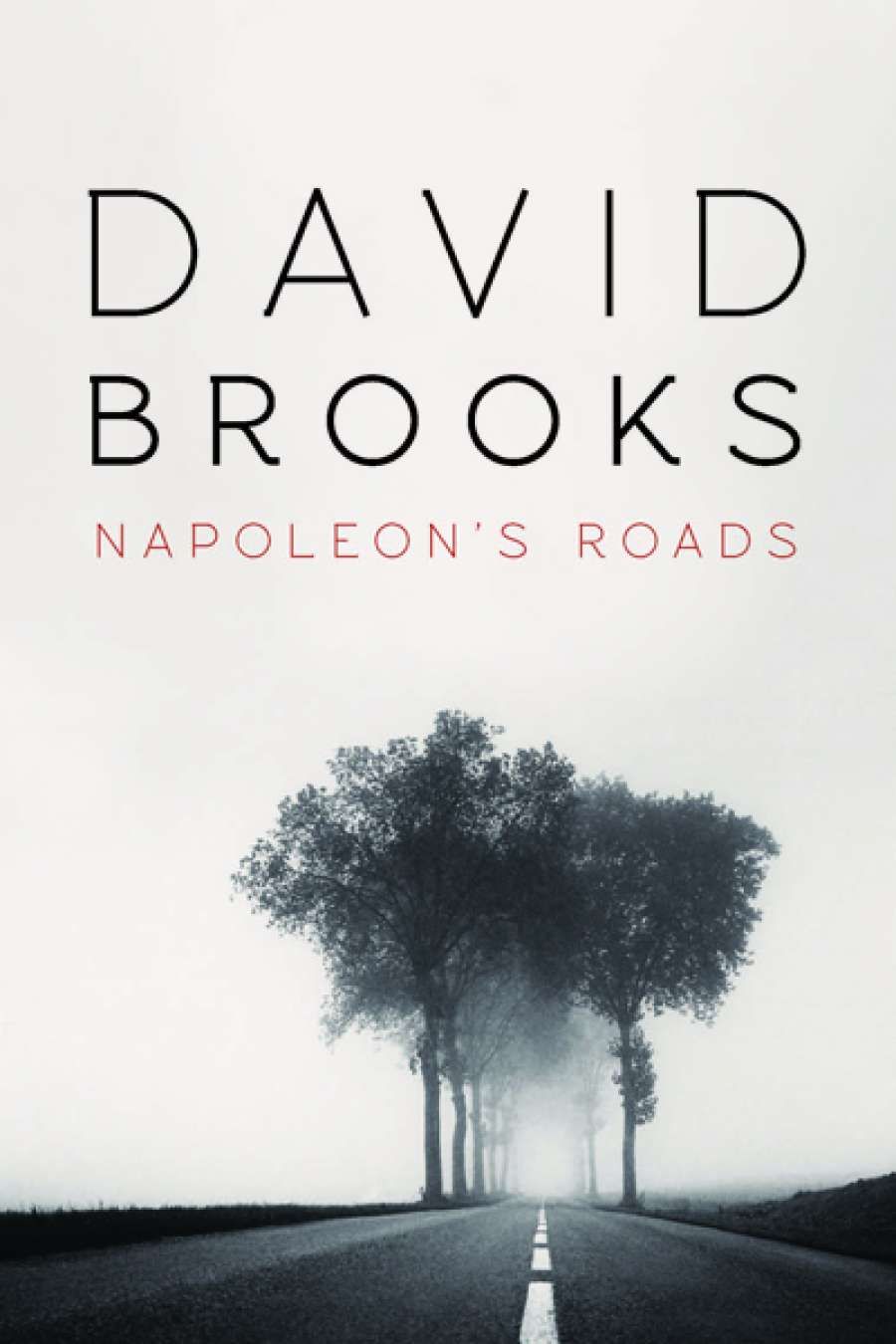
- Free Article: No
- Contents Category: Fiction
- Custom Article Title: Jane Sullivan reviews 'Napoleon’s Roads' by David Brooks
- Book 1 Title: Napoleon’s Roads
- Book 1 Biblio: University of Queensland Press, $23.95 pb, 168 pp, 9780702253911
As with several of the stories, the eponymous title story takes its inspiration from Europe, in this case the avenues in rural France lined with plane trees planted by Napoleon's troops. It is an image of bosky charm, but that is not how Brooks uses it. The roads are very straight and very dangerous, he tells us. Drivers are always crashing into the trees. Then he links the shapes the trees form with the panther from Rilke's famous poem, pacing to and fro behind the bars of its cage. There is an alarming sense of gathering speed, and a question: 'How to say that these roads are about what is not road, this text about what it is not?'
The final story, 'The Panther', returns to the Rilke image in its account of a writer haunted (benignly, at first) by a panther that has sprung from a painting in a gallery. It's a little bit Poe, a little bit the Ian McEwan of Black Dogs, a little bit something else surprising that is entirely Brooks.
What else? A man with a dying marriage excavates new rooms in the earth below his Sydney house; dreams of a city, 'Kabul', which may or may not be the city we know in Afghanistan; another Calvino-like city called only 'A'; a lighthouse keeper who dreams of another dreaming lighthouse keeper; the meaning of crows; a Kafka-like tale of sentries on the Great Wall (of China?); a tantalisingly beautiful story, 'Grief'; and another haunting by an animal, this time a swan.
Then there are more fragmentary pieces – and 'Lost Pages', a gently witty pseudo-academic attempt to pin down the impossible business of writing, where Brooks has fun with different fonts and spooky messages and paranoid fancies of writing erasing itself; places where words turn into snakes and jungles, and where we encounter that maddening will o' the wisp that every writer has experienced: the brilliant, insightful phrase that comes only when you can't get it down, and that can't be retrieved later.
 David Brooks
David Brooks
This gives some idea of his subjects and inspirations, but it can't convey the experience of reading his stories. I am constantly rounding a corner and finding a pathway that doesn't go anywhere, or leaves me dangling upside down, as if I'm in an Escher engraving. More-over, the person telling the story keeps receding before my eyes. Everything is elusive. Just when I'm worried it's all getting too self-conscious, too frustrating, Brooks rewards me with a glimpse of beauty, such as two white doves that 'seemed to be haloed or to burn with a cool, invisible flame'.
No story is seamless, Brooks says. Rooms, passageways, shafts lead to other stories and 'dark, cavernous spaces that may be stories the mind is not ready for'. That is a challenging and intimidating thought, but I like to believe that with Brooks to guide me, I might be ready for anything.
Groping is indeed a good word for the process of writing as Brooks sees it: finding or not finding your way in the dark, or maybe with that other sense of a clumsy or unwelcome sexual advance. And yet he is so clearly a master of his own prose. Going back to the little piece 'Paths to the City', which opens the book with the question 'Why do we write?', he finishes the piece with a vast speculation:
Perhaps, after all, we are something we never thought we were, affects of a language we have not had the clues to decipher, its need to survive some half-forgotten track picked out in the bewildering star-encrusted firmament that shimmers and seems to cover, in inverse, the inconceivable dunes of the sky.
What I love about that sentence is the way that Brooks drops in 'dunes'. Not 'dome' or 'domes', words you'd expect to describe the sky. It puts me upside-down again, on the earth and among the stars.


Comments powered by CComment